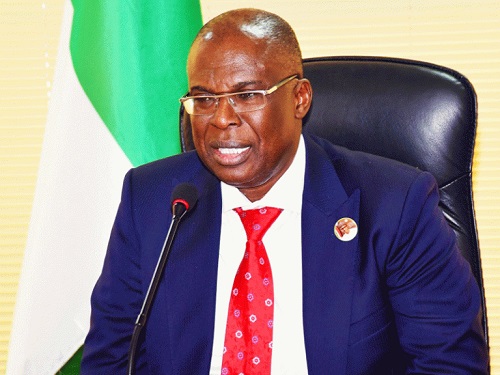This post has already been read 1715 times!
The Minister of State, Petroleum Resources, Mr Timipre Sylva, has revealed that in the last 10 years, local content in Nigeria’s oil and gas sector has risen from a paltry 3 per cent to about 43 per cent.
Speaking while receiving the Senegalese Minister of Energy, Sophie Gladima, and her delegation in Abuja, the minister said that the federal government had put workable policies in place to ensure that at least 70 per cent of positions and assets are deployed by the country by 2027.
Sylva stated that it was important for the African continent to come together and chart the way forward, noting that Africa cannot continue to depend on Europe and the outside world for its salvation.
While stating that Nigeria has gained some advantages and learnt a lot of lessons from its mistakes, he noted that oil production activities started in Nigeria as early as 1937 but that no commercial discovery was made until the 1950s.
“The first commercial discovery was made in 1956 and the first cargo of crude oil left Nigeria in 1958, that means we have been effectively in oil production for over 60 years.
“When we started production activities in Nigeria, Nigerians were complete spectators and we were not part of the production activities. Every position was occupied by expatriates, our communities were just onlookers to their activities.
“But since then, there is a lot of capacity development in Nigeria, and today we can tell you that a significant percentage of Nigeria’s crude is being produced by Nigerian companies. Also the Nigerian involvement even in the International Oil Companies (IOCs) has increased to the extent that some of the IOCs now have Nigerians as their managing directors in the Nigeria subsidiary,” he said.
Aside that, he noted that Nigeria is now in a position to impart some of these experiences to its neighbours, including Senegal which was in Nigeria to tap from the country’s years of operating in the sector.
Sylva explained that the benefits of crude oil production lies in its ability to ensure that the wealth that it produces is also domiciled in the country, noting that it is what the Nigerian Content Development Monitoring Board (NCDMB) seeks to achieve.
“So far, we have grown local participation in our industry from just 3 per cent in the last 10 years to 43 per cent, and our target is to grow that local participation to 70 per cent in 2027. And we are committed to that because it is the best way to domicile the benefits of oil,” the minister stressed.
He assured his guest that Nigeria would support the Senegalese energy sector to grow and urged the country to join the African Petroleum Producers Organisation (APPO).
In her comments, the Senegalese minister stated that the delegation was in Nigeria to build synergy with their Nigerian counterparts for the development of the oil and gas industry in the African continent, being that Nigeria has over 50 years of experience in the sector.
The minister added that she would be interested in learning the secrets of the trade and to see how Nigeria has been able to build local content in the years it has been active in the sector.
She called on Nigeria to support Senegal in four areas, including security management in the oil and gas sector, national oil company organisation, local content regulation and state-owned oil company’s strategies.



